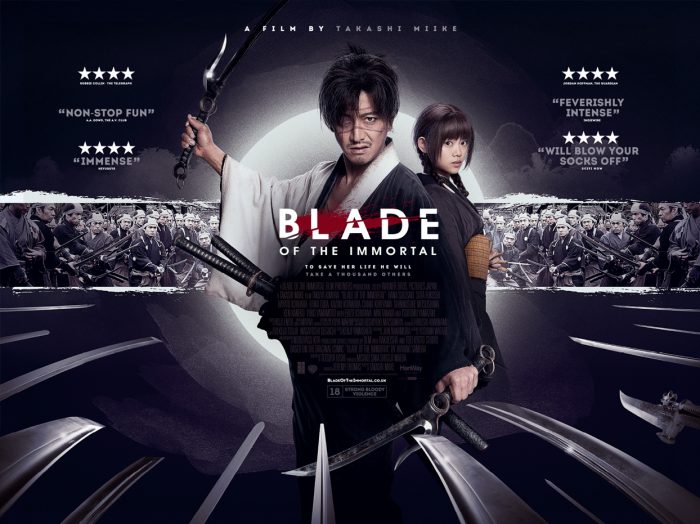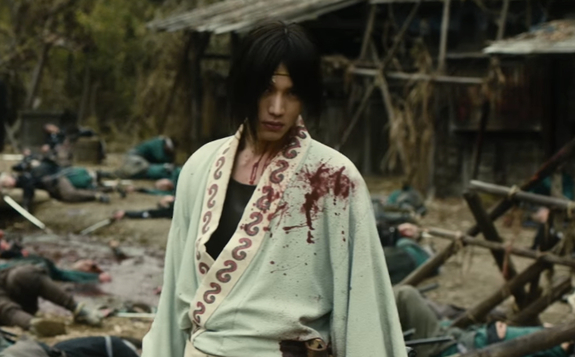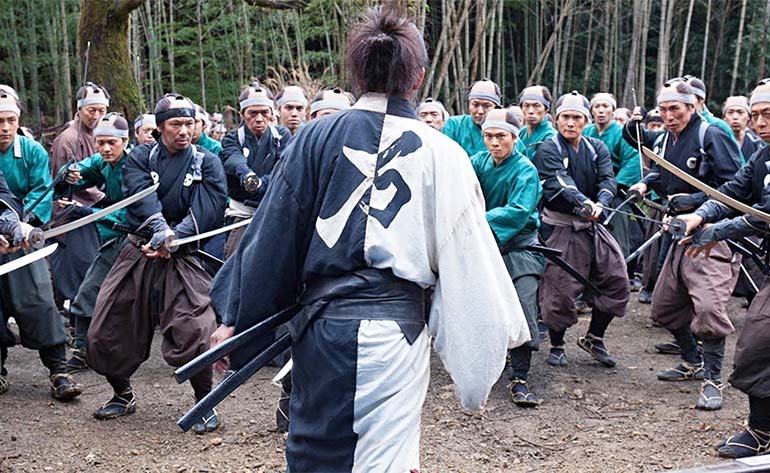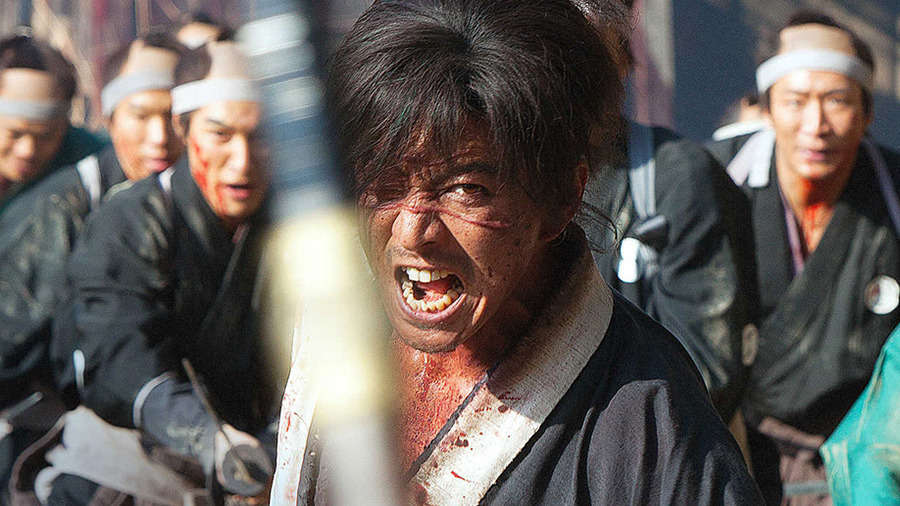
Fifty two years after being given the gift of immortality, Samurai Manji is sought out by Rin and then steered towards his own redemption by helping her seek revenge on those that killed her father.
Released in 2017 Blade of the Immortal is a film by Takashi Miike who is perhaps better known for over the top yakuza films such as Dead or Alive and Ichi the Killer or horror works like Audition. If these are your reference point for the director, BOTI may be a surprise. There is a certain stillness to this piece with understated performances and scenes which we found to have an almost calming quality.

This is a samurai movie with a central plot which is driven by revenge but the deeper you get into it, the more there is to it. Alongside revenge you get themes of redemption, loss, regret, tradition and the circle of life. To go into too much detail would be treading into spoiler territory which we don’t like to do. Jamie and I both found that there was a lot more to it than we first thought and found that there was something new with each viewing. But then we are film geeks!
As stated this is a samurai film and there are sword fights. The film is bookended by two impressive battle scenes which are both chaotic and fought with a sense of purpose at the same time. There are also various encounters throughout the movie which are one on one duels. The sword work choreography feels very rooted in the traditional style and form, with emphasis on focus and economy of motion. Given that this is based on a Manga ( Japanese comic) there is nothing too elaborate or fanciful in the action. Aside from the fact our main character is blessed, or cursed, with immortality it is pretty grounded in reality.

Stylistically this work is shot in a very classical way with very beautiful framing, the camera work is almost a character in itself. When the action onscreen is still, the camera is still. In the fight scenes the camera follows the choreography with a fluency and flow which is a nice contrast to the shakey cam jump cut techniques some filmmakers use in the west. This approach makes even the most kinetic of scenes strangely calm. The use of the soundtrack adds to this as you are mostly left with the sounds of the fighting without any music to “amp” you up. Music is used in this film sparsely and wisely.
Structurally this is very much a conventional three act piece. There is nice use of black and white transitioning to colour in the first act. We both feel there is nothing padded out in this piece. Everything that needs to be shown is shown, no more no less. The running time is 2hrs 20mins and it certainly doesn’t feel like that as you watch. The pacing is as close to perfect as we have seen.

Although there are a host of characters we feel the three main ones are Manji (Takuya Kimura), Rin (Hana Sugisaki) and Anotsu (Sota Fukushi). All three performances are spot on. Where these characters could be played as exaggerated versions the choices here are to keep them almost low key. Kimura’s portrayal of Manji is reminiscent of Toshihiro Mifune in Yojimbo, with an everyman put against the odds quality. One of the key scenes in the movie is a meeting between Rin and Anotsu. Without going into too much it is a scene that again could have been played a lot differently but has been kept understated and quiet which makes it all the more powerful. Sugisaki’s performance as Rin makes her perhaps the strongest character of the three, driven by vengeance and a determination that will not waver. It is refreshing to see a strong female character in what is usually a male dominated setting.
This is a film that grows on you with each viewing. As we had already said you get something new from each watch, whether in the performances or the way the camera flows through a scene. Perhaps one of Mikke’s more overlooked works we feel it is one of the more rewatchable of his movies. It may not have performed brilliantly at the time of release but Jamie and I both think it is going to be a DVD/Blu-Ray cult classic.
Stay tuned for our review of 13 Assassins. Coming Soon